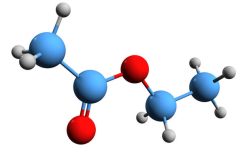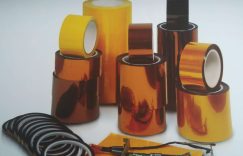Polyimide, a high-performance material, has found its way into the cutting-edge technology used in China’s space program. This remarkable material, known as “Kapton” by DuPont, the company that developed it, plays a crucial role in both the “Yutu” lunar rover and the “Chang’e” lunar exploration missions.

Polyimide possesses an exceptional combination of properties that make it ideal for these demanding applications. First and foremost, it exhibits exceptional thermal stability, способный выдерживать extreme temperatures ranging from -269°C to 400°C, making it suitable for the harsh conditions of space. Additionally, it boasts high strength and dimensional stability, ensuring that it maintains its shape and integrity under various stresses.

Another key advantage of polyimide is its excellent electrical insulation properties. It effectively resists the flow of electricity, minimizing the risk of short circuits or electrical interference. This characteristic is particularly important in the intricate electronics and instruments found on spacecraft, where reliable electrical performance is paramount.

Furthermore, polyimide exhibits low outgassing, meaning that it releases minimal amounts of gases or vapors into the spacecraft’s environment. This is crucial because excessive outgassing can contaminate delicate sensors and instruments, potentially leading to malfunctions or even mission failure.
In the “Yutu” lunar rover, polyimide is utilized in various components, including the solar panel substrates, flexible printed circuit boards (PCBs), and wire insulation. Its lightweight and durable nature make it an ideal choice for these applications, as it helps reduce the overall weight of the rover while ensuring reliable operation.
In the “Chang’e” lunar missions, polyimide serves as a crucial material for the spacecraft’s thermal control system. It is used in multi-layer insulation blankets (MLIs) to regulate the temperature of the spacecraft, ensuring that it remains within a safe operating range despite the extreme temperature variations in space.
Beyond its applications in space exploration, polyimide finds extensive use in various industries, including electronics, aerospace, automotive, and medical devices. Its unique blend of properties, such as high-temperature resistance, electrical insulation, and low outgassing, makes it a sought-after material for demanding applications where performance and reliability are paramount.
As China continues to push the boundaries of space exploration, polyimide will undoubtedly play a vital role in the success of future missions. Its exceptional properties and versatility make it an indispensable material for crafting reliable and high-performing spacecraft components that can withstand the harsh realities of the cosmos.



